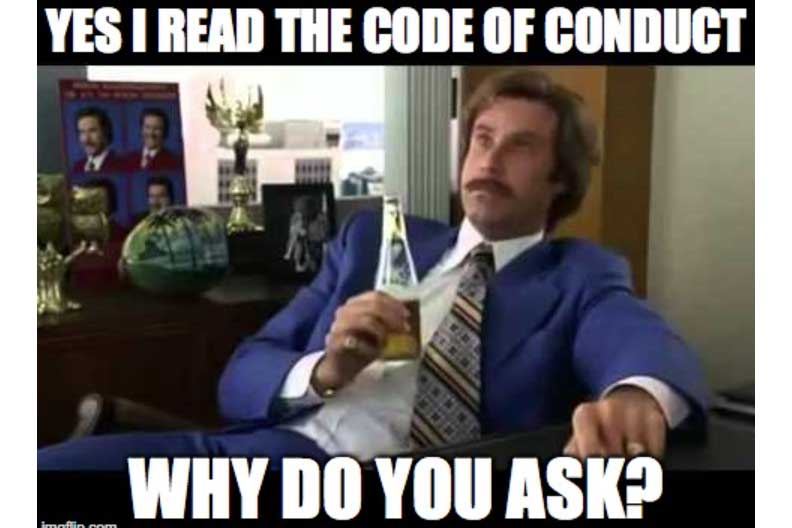Analysis of Uber code of conduct

I would like to share my thoughts on code of conduct of Uber. I wanted to find interesting code of ethics, ethics policy or code of conduct and, sincerely, I struggled for a bit. As these papers are usually official and are legal documents, most of them seemed a little bit boring for me. They also felt very similar to each other even among IT companies. The most interesting which I could find was Ubers' Business conduct guide from November 2019. Its online version can be found here: https://s23.q4cdn.com/407969754/files/doc_governance/2019/Uber-COBC-2019-English.pdf There are several points which I noticed right away in this document: Visual design - this documents clearly had quite some time spent on it by designers. I also feel that quite a lot of resources were spent on it from both legal and design departments. Separation on small parts - pages have more pictures and less text in them than in most other documents that I found. Each page is not overflowed with text, so it feels ...

